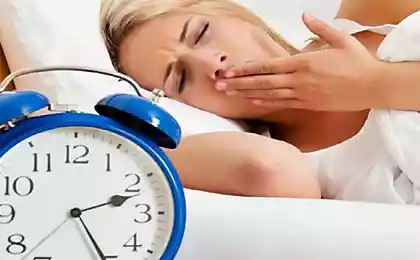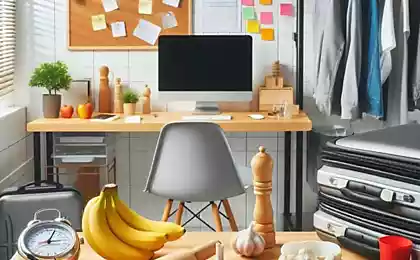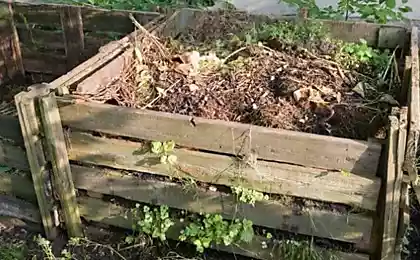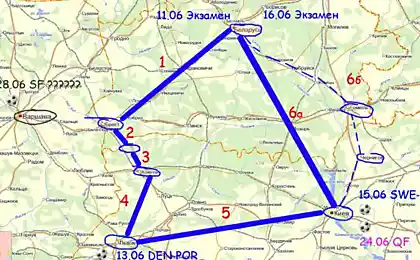886
"Nap like a pro": how to take a nap with the maximum benefit
Sleep can be different "We have all heard about the merits of a short afternoon nap - says Tiffany Wen - but perhaps there are different ways to take a nap during the day - some better, others worse?»
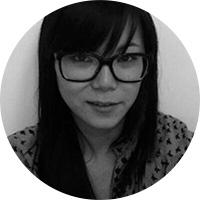
When I was little, sleep in my family to give priority to. I and my brothers and sisters did not have a clear daily routine, bedtime might vary, so that we may, at its discretion dispose cooked in the microwave "TV dinner" (it was 80 years), and playing video games.
But one thing never changes: we could not disturb the adult or child, if one of them fell asleep.
When I got older, I was waiting for a rude awakening. It turned out in the community look down on an afternoon nap adults. However, there is plenty of evidence to suggest that the person receives a number vzdremnuvshy cognitive benefits - from increased vigilance to improve motor skills, perception and memory consolidation.
So how do you make the most of a few minutes of sleep? In a study published last year, experts have found that both the night and daytime sleep improves memory consolidation for unrelated pairs of words such as "Pepper" and "elbow", for example. It is expected that it may help if you are trying to learn some complicated to memorize concepts.
In another experiment, conducted by Beijing University of Technology, studied the effect on athletes nap after training. It was found that it improves the function of the brain and the visual system and contributes to the physical and mental recovery - this result indicates that a nap after training may contribute to the consolidation and movement of human memory.
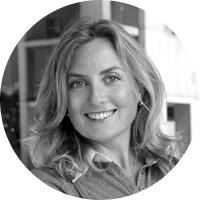
In a study published in 2008, Sarah Coppersmith University of California, author of "nap - and change your life!", And her colleagues compared the effects of 200 mg of caffeine (about as much is contained in an average cup of coffee) and the effect of 60-90 minutes of daytime sleep. They found that sleep improves memory performance, whereas caffeine or no effect on memory performance or degrades it. Researchers believe that caffeine blocks the consolidation of the new material in long-term memory, increasing the level of neurotransmitters in the hippocampus called acetylcholine (this is the same neurotransmitter levels which naturally decreases during the phase of REM sleep).
Due to the obvious advantages of an afternoon nap, some companies have allowed their employees to sleep on the job. This year the company - software developer HubSpot has developed a special room to sleep in his office in Massachusetts. The room has a hammock and a muted light. Employees can use the room at any time.
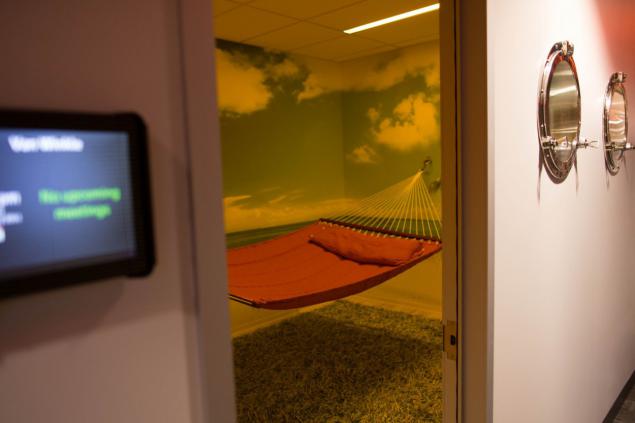
According to the employee HubSpot Alison Elworthy, such a policy is a great success, and this is especially useful to young parents who do not always manage to sleep at night.
"People are very excited about this opportunity, and generally do not abuse it," - she says.
In other businesses the success was not so noticeable. However Coppersmith says that about 40% of people feel the need to sleep in the afternoon and feel his favor.
The best way to vzdremnutIssledovateli based on circadian rhythms, it is believed that the most appropriate time for an afternoon nap is a gap in the second half of the day - from 14:00 to 16:00.
Coppersmith even developed a special technique that allows to set the perfect bedtime, time REM and non-REM sleep are perfectly balanced. This perfect balance, usually occurs within six to eight hours after morning awakening.
And yet a way to take a nap depends on what kind of effect you want. In the 2009 study Coppersmith and her colleagues compared the effects of REM sleep, deep sleep and quiet rest (while awake) to solve creative problems.
On the morning of the test, the students were given the task: they had to come up with a word that is associated with up to three unrelated at first glance, the words to each other.
For example, the word "fall", "actor" and "dust" may be associated with the word "star." In the afternoon, students are immersed in a phase of rapid eye movement, or a phase of deep sleep, or just relax, and watch. When they met again in the evening to repeat the test morning, students had previously received a "dose" of REM sleep, coped with the test the best. In other words, REM sleep may help solve creative problems.
"So if you need recovery sleep, you should go to bed later, in the days when you have dominated REM sleep. And if you need sleep, the ability to expand your creativity, you should go to bed earlier, if that day you dominated REM sleep, "- says Coppersmith.
However, REM sleep takes more time: have to sleep longer, about 60-90 minutes because REM sleep - the last stage of the sleep cycle. Nevertheless, short sleep, too, has its advantages.
A study in Australia found that even a 10-minute afternoon nap subjects enough to recover from the effects of lack of sleep a night.
The subjects felt less sleepy, more energetic, and demonstrated improved cognitive performance for 155 minutes after waking up.
At 20 and 30 minutes of sleep also had its advantages: cognitive improvement observed in the subjects for longer, though are not immediate. Apparently, the subjects needed more time to overcome the inertia of sleep, which arose because of a longer vacation.
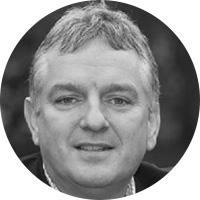
It is directly linked to research conducted by John Grodzherom, professor of psychology at the University of British Hallskogo, which showed that the one who sleeps during the day, immediately after awakening should avoid performing complex high-level tasks.
"After waking up, you can pretty well do simple things. But your brain takes an hour or two to fully engage in the work, "- he said.
Timing is vsёOchevidno that daytime sleep - is the key factor. This is what is trying to make all kinds of new applications for smartphones and even "smart" mask for sleep.
One such masks - NeuroOn. It monitors brain waves and eye movement and can wake the user at the optimum time for him.
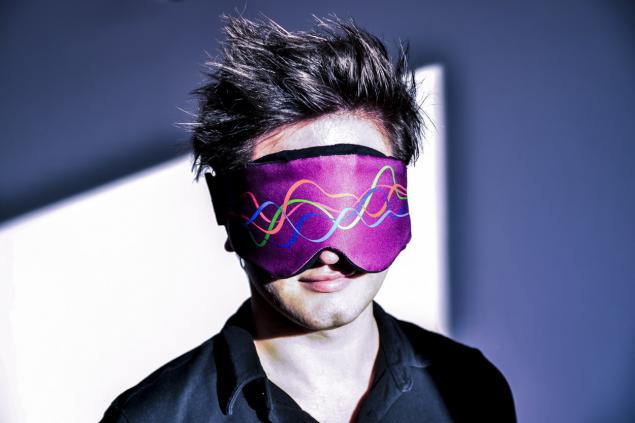
This is not the first "smart Mask" in the market. In the United States some time to sell a similar device called Zeo, but the development company, last year closed.
In a recent study Nikola Cellini, a specialist from the University of Padova, and his colleagues examined whether it is possible to compare the Zeo to polysomnographic systems used in the laboratory to monitor the phases of sleep. The result was predictable: they found that the opportunities far from Zeo laboratory equipment and, of course, is far from the standards applicable to the equipment by researchers sleep.
Despite the findings, Cellini believes that the entry into the market of personal masks, precisely controlling the phase of sleep - it is only a matter of time. In fact, now there is evidence that even a simple pair of electrodes that are attached to the forehead, is quite capable of accurately track sleep.
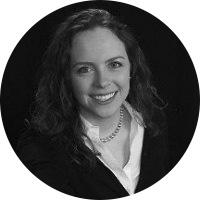
However, all these tips on improving the efficiency of sleep should be taken with some reservations. For example, Elizabeth McDevitt University of California, is studying whether it is possible to improve their cognitive function, plunging into the "unnatural" naps. Although her research has not been published, she argues that the dream does not bear any good. This means that if you do not feel the need during the day to take a nap, do not force yourself to be - it's still not going to help.
In addition, and Cellini, and others have already given up the concept of "polyphasic sleep." Under this strategy, people sleep for short periods of time - to spend less time sleeping overall.
"No matter how you developed your strategy, it will never replace you a full night's sleep," - says Cellini.
via www.bbc.com/future/story/20150106-how-to-nap-like-a-pro

When I was little, sleep in my family to give priority to. I and my brothers and sisters did not have a clear daily routine, bedtime might vary, so that we may, at its discretion dispose cooked in the microwave "TV dinner" (it was 80 years), and playing video games.
But one thing never changes: we could not disturb the adult or child, if one of them fell asleep.
When I got older, I was waiting for a rude awakening. It turned out in the community look down on an afternoon nap adults. However, there is plenty of evidence to suggest that the person receives a number vzdremnuvshy cognitive benefits - from increased vigilance to improve motor skills, perception and memory consolidation.
So how do you make the most of a few minutes of sleep? In a study published last year, experts have found that both the night and daytime sleep improves memory consolidation for unrelated pairs of words such as "Pepper" and "elbow", for example. It is expected that it may help if you are trying to learn some complicated to memorize concepts.
In another experiment, conducted by Beijing University of Technology, studied the effect on athletes nap after training. It was found that it improves the function of the brain and the visual system and contributes to the physical and mental recovery - this result indicates that a nap after training may contribute to the consolidation and movement of human memory.

In a study published in 2008, Sarah Coppersmith University of California, author of "nap - and change your life!", And her colleagues compared the effects of 200 mg of caffeine (about as much is contained in an average cup of coffee) and the effect of 60-90 minutes of daytime sleep. They found that sleep improves memory performance, whereas caffeine or no effect on memory performance or degrades it. Researchers believe that caffeine blocks the consolidation of the new material in long-term memory, increasing the level of neurotransmitters in the hippocampus called acetylcholine (this is the same neurotransmitter levels which naturally decreases during the phase of REM sleep).
Due to the obvious advantages of an afternoon nap, some companies have allowed their employees to sleep on the job. This year the company - software developer HubSpot has developed a special room to sleep in his office in Massachusetts. The room has a hammock and a muted light. Employees can use the room at any time.

According to the employee HubSpot Alison Elworthy, such a policy is a great success, and this is especially useful to young parents who do not always manage to sleep at night.
"People are very excited about this opportunity, and generally do not abuse it," - she says.
In other businesses the success was not so noticeable. However Coppersmith says that about 40% of people feel the need to sleep in the afternoon and feel his favor.
The best way to vzdremnutIssledovateli based on circadian rhythms, it is believed that the most appropriate time for an afternoon nap is a gap in the second half of the day - from 14:00 to 16:00.
Coppersmith even developed a special technique that allows to set the perfect bedtime, time REM and non-REM sleep are perfectly balanced. This perfect balance, usually occurs within six to eight hours after morning awakening.
And yet a way to take a nap depends on what kind of effect you want. In the 2009 study Coppersmith and her colleagues compared the effects of REM sleep, deep sleep and quiet rest (while awake) to solve creative problems.
On the morning of the test, the students were given the task: they had to come up with a word that is associated with up to three unrelated at first glance, the words to each other.
For example, the word "fall", "actor" and "dust" may be associated with the word "star." In the afternoon, students are immersed in a phase of rapid eye movement, or a phase of deep sleep, or just relax, and watch. When they met again in the evening to repeat the test morning, students had previously received a "dose" of REM sleep, coped with the test the best. In other words, REM sleep may help solve creative problems.
"So if you need recovery sleep, you should go to bed later, in the days when you have dominated REM sleep. And if you need sleep, the ability to expand your creativity, you should go to bed earlier, if that day you dominated REM sleep, "- says Coppersmith.
However, REM sleep takes more time: have to sleep longer, about 60-90 minutes because REM sleep - the last stage of the sleep cycle. Nevertheless, short sleep, too, has its advantages.
A study in Australia found that even a 10-minute afternoon nap subjects enough to recover from the effects of lack of sleep a night.
The subjects felt less sleepy, more energetic, and demonstrated improved cognitive performance for 155 minutes after waking up.
At 20 and 30 minutes of sleep also had its advantages: cognitive improvement observed in the subjects for longer, though are not immediate. Apparently, the subjects needed more time to overcome the inertia of sleep, which arose because of a longer vacation.

It is directly linked to research conducted by John Grodzherom, professor of psychology at the University of British Hallskogo, which showed that the one who sleeps during the day, immediately after awakening should avoid performing complex high-level tasks.
"After waking up, you can pretty well do simple things. But your brain takes an hour or two to fully engage in the work, "- he said.
Timing is vsёOchevidno that daytime sleep - is the key factor. This is what is trying to make all kinds of new applications for smartphones and even "smart" mask for sleep.
One such masks - NeuroOn. It monitors brain waves and eye movement and can wake the user at the optimum time for him.

This is not the first "smart Mask" in the market. In the United States some time to sell a similar device called Zeo, but the development company, last year closed.
In a recent study Nikola Cellini, a specialist from the University of Padova, and his colleagues examined whether it is possible to compare the Zeo to polysomnographic systems used in the laboratory to monitor the phases of sleep. The result was predictable: they found that the opportunities far from Zeo laboratory equipment and, of course, is far from the standards applicable to the equipment by researchers sleep.
Despite the findings, Cellini believes that the entry into the market of personal masks, precisely controlling the phase of sleep - it is only a matter of time. In fact, now there is evidence that even a simple pair of electrodes that are attached to the forehead, is quite capable of accurately track sleep.

However, all these tips on improving the efficiency of sleep should be taken with some reservations. For example, Elizabeth McDevitt University of California, is studying whether it is possible to improve their cognitive function, plunging into the "unnatural" naps. Although her research has not been published, she argues that the dream does not bear any good. This means that if you do not feel the need during the day to take a nap, do not force yourself to be - it's still not going to help.
In addition, and Cellini, and others have already given up the concept of "polyphasic sleep." Under this strategy, people sleep for short periods of time - to spend less time sleeping overall.
"No matter how you developed your strategy, it will never replace you a full night's sleep," - says Cellini.
via www.bbc.com/future/story/20150106-how-to-nap-like-a-pro
7 main tricks of the bestseller "How to talk to anyone"
"Top 10" reasons why we love so much "10 Tops"




